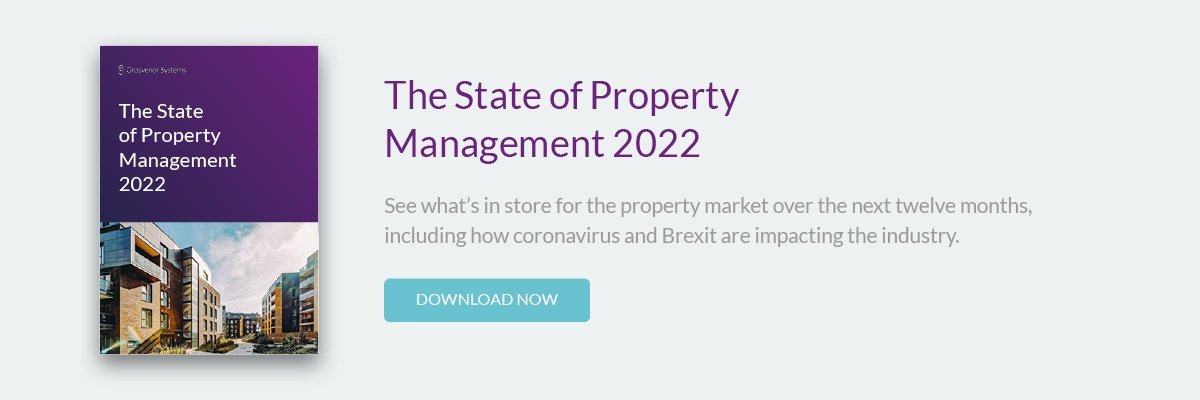How to Find High-Value Clients for a Property Management Company
There’s how to find clients for a property management company — and then there’s how to find the right clients for a property management company.

More than just the standard ways of generating leads, this blog explains how to find quality clients that will give you the best ROI and help build a sustainable, successful property management business. Here are all the ways to find high-value clients for a property management company with some food for thought at the end.
Lead Generation
The act of sourcing new clients is lead generation. That’s why every blog on this topic will talk about some form of lead generation tactic. For mid-tier to enterprise firms, you’ll want to focus only on the activities that will provide qualified leads. Door to door leafleting and small newspaper ads, for these high-achievers, won’t cut the mustard. But the following tactics will.
Client Referral Schemes
To produce like for like customers, client referral schemes are a smart bet. Recommendations ensure those sitting in your sales pipeline are at the same calibre as existing customers, helping you build a community with a competitive advantage.
This method is particularly successful when you don’t have much time or other resources to devote to lead generation, requiring no work on your part other than to offer an appealing incentive and continue to provide superior service that’s worth sharing.
Content Marketing
Evergreen, educational content quickly communicates to prospective customers which category your management firm falls under and what you can do for them. Acting as both a sales magnet and a filter, blogs, articles and social media help position your firm while pulling appropriate clients to your doorstep.
Property management blogs can answer your prospective client’s most burning questions and overcome their objections. For clever content marketing, management firms can build thought leadership and create experts by authoring blogs on a particular topic — such as block management — all by the same area specialist.
Digital Advertising
For fast, effective, data-driven lead generation, digital advertising is the way to go. Reaching a much wider audience than traditional advertising and with a much more targeted approach, digital advertising routes such as Facebook Ads and Google Ads take advantage of data capture to target the most relevant segments of the population.
Although this practice may require some training or external expertise, it’s well worthwhile and provides clear ROI regarding how much it costs to acquire a single customer.
Search Engine Optimisation (SEO)
Bringing more visibility to your property management operation can dramatically increase the number of doors on your books and allow you to compete with some of the biggest players in your area or niche.
Looking into local SEO, cleaning up your content marketing efforts and understanding how search engine optimisation works is a long but worthwhile game. If you get it right, it helps you dominate a popular term or geographical location.
Manual Outreach
Manual outreach is a tried-and-tested tactic that shouldn’t be neglected in new, more digitally-driven lead generation campaigns. When traditional outreach methods are strategically planned incorporating innovative tools like LinkedIn, cold calling can yield some surprising results. For example, 82% of people said they agreed to a meeting with a sales team after a series of conversations that started with a cold call.
Importantly, it matters that you conduct cold calling in the right way, respecting the person’s time and doing all relevant research before picking up the phone. Likewise, you should give individuals an easy get-out clause if asking to connect on LinkedIn, taking the pressure off the initial interaction.
Company Reputation
You can perform all the lead generation tactics in the world and strategise to a tee, but none of it will matter if your company has a poor reputation. Reputational damage is the number one thing that kills appeal for high-value clients that only want to align themselves with firms of the same status.
So, investing in your image and working on your proposition more holistically can have a significant impact on whether the most desirable accounts will be receptive to your tries.
Website Development
Doing an audit of your digital footprint can help stop any red flags in a prospective client’s research. So, making quick website fixes or completing your website’s overhaul might be required.
Check that branding is consistent across your website, your copy communicates your USP and that all links work, showing no 404 pages or strange glitches in the system. You can also improve page speed, domain authority (how trustworthy your website is compared to others) and security certificates to increase trust.
Testimonials
Online and in brochures, testimonials should be up-to-date and glowing, showing off the best your company can offer. Highlight testimonials from the type of clients you want to attract and work harder to improve your star ratings on independent third-party websites like Trustpilot.
If you can go one step further and film video testimonials, this could be the key to unlocking the larger accounts that are extra cautious about committing to any management service.
PR Coverage
You might also think of ways to get positive PR coverage, from creating case studies to engaging in community work and charity initiatives. The more extracurricular activities your firm can be seen doing, the more accomplished it seems and apt to take on more sprawling development projects.
In turn, this can also improve your website’s backlink profile (the number of websites pointing to your domain), strengthening your authority score and creating easier routes to find out more about your services.
Rethinking Your Tech Stack
Partnering with property technology and being transparent about what you use to expertly manage properties can become a real selling point for more hands-on landlords and owners.
Now, owners want to see efficiencies in managing multiple properties at once, looking to things like AI and automation to support day-to-day duties. If you can show that tasks will be handled in a timely and professional manner, you’ll be one step closer to sealing the deal.
Scalability
Lastly, and perhaps most importantly, you’ll need to see if your client base proves scalable to work out whether existing and prospective clients hold true value. This is the food for thought part, which should take precedence over rushing to complete a Facebook Ad campaign or book in a website redesign.
The numbers of your property management clients need to add up. We work that out by looking at two all-important factors: cost of acquisition and customer lifetime value.
Cost of Acquisition
Put simply, the cost of acquiring a customer needs to be less than their lifetime value for the acquisition to be worthwhile. The thought process behind high-value customers is that their lifetime value is greater, almost guaranteeing their acquisition will be lesser than this.
However, that isn’t always the case.
Sometimes, we need to look at our acquisition to really drive down the chances of property management clients not providing any ROI. These costs include the expense of an advertising campaign, the fee for fixing your website and the salary spent on conducting manual outreach or creating content.
Customer Lifetime Value
To work out a customer’s lifetime value, you might want to use a CRM like HubSpot to figure out the average revenue each customer brings throughout your relationship with them.
This will consider things like a rolling monthly management fee multiplied by the number of months a customer spends on your services.
Higher value clients may have more complex management needs or simply more square footage to manage. This automatically means their costs go up and so too will their lifetime value if they stay for a sufficient period.
When these two factors align, firms have a happy medium and their property management business is profitable. But what about all of the other external factors that can impact your individual accounts?
Look at the Bigger Picture to Find and Retain High-Value Clients, Against All Odds
From financial difficulties to sudden changes in the property market, there can be many reasons why an account might be cut much shorter than the average lifecycle. On the flipside, movements in the market can open up new opportunities for management firms and inform innovation.
In the State of Property Management 2022, this is all explained for the current year, considering how forces such as Brexit and coronavirus may impact property managers in the near future. With it comes some opportunities for new high-value clients and some challenges to overcome.
Read the report now, created by our expert analysts.


